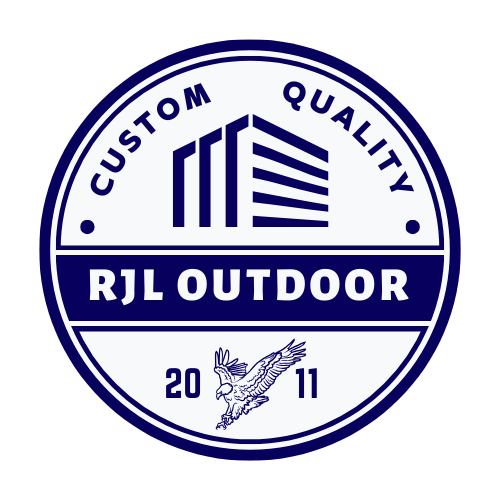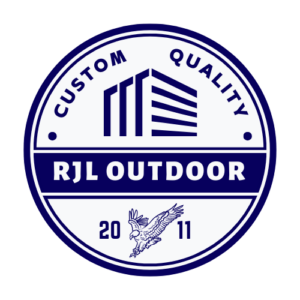Howdy!
Navigating the ins and outs of property enhancement in the Dallas-Fort Worth metroplex can feel like traversing a labyrinth, especially when zoning regulations and the desire for custom metal gates intertwine. But fret not, because we’re here to guide you through this intricate landscape, ensuring your vision aligns seamlessly with DFW’s zoning ordinances.
DFW Zoning: A Quick Primer
Before delving into the specifics of custom metal gates, let’s establish a basic understanding of DFW’s zoning regulations. Essentially, zoning ordinances dictate how land can be used, encompassing residential, commercial, industrial, and agricultural classifications. Each classification further branches out into subcategories, each with its unique set of regulations.
Why is this relevant to your dream custom metal gate? Because zoning regulations often stipulate fence and gate height restrictions, setback requirements (the distance your gate must be from property lines), and even design elements. Ignoring these regulations can lead to costly fines and delays, potentially hindering your project’s progress.
Custom Metal Gates: Merging Aesthetics with Functionality
Now, let’s shift our focus to the stars of the show – custom metal gates. These architectural marvels not only enhance security and privacy but also elevate your property’s curb appeal. From sleek and modern designs to ornate and traditional styles, custom metal gates offer endless possibilities to complement your home’s architecture and reflect your unique taste.
Materials Matter: Choosing the Right Metal
The longevity and aesthetic appeal of your custom metal gate are intrinsically linked to the chosen material. Each metal possesses distinct characteristics that influence its durability, maintenance needs, and overall cost.
-
Steel: Renowned for its strength and durability, steel offers exceptional resistance to impact and harsh weather conditions. While it requires periodic maintenance to prevent rust, a protective coating can significantly extend its lifespan.
-
Aluminum: If you seek a lightweight yet robust option, aluminum emerges as a top contender. Its inherent corrosion resistance eliminates rust concerns, making it ideal for the humid DFW climate.
-
Wrought Iron: For those captivated by timeless elegance, wrought iron exudes an aura of sophistication and grandeur. While demanding more upkeep than steel or aluminum, its intricate designs and enduring beauty make it a worthwhile investment.
Navigating DFW Zoning for Custom Metal Gates
With a firm grasp of zoning basics and material options, let’s navigate the specific regulations pertaining to custom metal gates in the DFW area. Keep in mind that these regulations can vary significantly between cities and even within neighborhoods governed by homeowners’ associations (HOAs).
1. Height Restrictions: The most common restriction concerns gate height. In residential areas, the maximum allowable height typically ranges from 4 to 6 feet. However, exceptions may exist for corner lots or properties bordering busy streets, where increased height enhances security and noise reduction.
2. Setback Requirements: Setback regulations dictate how far your gate must be positioned from property lines, sidewalks, and streets. These regulations prevent encroachments and ensure safe passage for pedestrians and vehicles. Check with your city’s planning department for specific setback requirements in your neighborhood.
3. Design Guidelines: Some HOAs and historic districts enforce design guidelines to maintain a cohesive aesthetic within the community. These guidelines may encompass permissible materials, colors, and even stylistic elements. For instance, ornate wrought iron gates might be encouraged in a historic district, while a modern minimalist design could be better suited for a contemporary neighborhood.
4. Visibility and Safety: Zoning regulations prioritize public safety, particularly at street intersections. Gates situated near corners must offer unobstructed visibility for drivers and pedestrians. Consider incorporating transparent elements like vertical bars or a decorative lattice design to ensure optimal visibility.
5. Permitting Process: Before erecting your custom metal gate, it’s crucial to determine whether your project requires a permit. Permit requirements vary depending on factors like gate height, location, and local regulations. Contacting your city’s planning department or consulting a reputable contractor specializing in custom metal gates can clarify the permitting process.
DFW Cities and Their Custom Gate Ordinances
Navigating the intricacies of zoning regulations across the sprawling DFW metroplex can feel overwhelming. To simplify your journey, we’ve compiled a brief overview of custom gate ordinances in some of the major DFW cities.
Dallas
-
Residential Gate Height: Generally limited to 6 feet in height.
-
Setback Requirements: Gates must be set back at least 1 foot from the property line.
-
Design Guidelines: Dallas encourages designs that complement the surrounding neighborhood’s architectural style.
-
Permitting: Permits are typically required for gates exceeding 4 feet in height.
Fort Worth
-
Residential Gate Height: Maximum height of 6 feet for front yard gates and 8 feet for backyard gates.
-
Setback Requirements: Gates should not encroach upon public sidewalks or obstruct visibility at intersections.
-
Design Guidelines: Fort Worth emphasizes compatibility with the neighborhood’s character.
-
Permitting: Permits are generally required for gates exceeding 6 feet in height.
Arlington
-
Residential Gate Height: The maximum allowable height is 6 feet.
-
Setback Requirements: Gates must maintain a minimum distance of 1 foot from the property line.
-
Design Guidelines: Arlington encourages designs that harmonize with the neighborhood’s aesthetics.
-
Permitting: Permits may be required depending on gate height and location.
Plano
-
Residential Gate Height: Front yard gates are limited to 4 feet in height, while backyard gates can reach up to 6 feet.
-
Setback Requirements: Gates should not obstruct public right-of-way or impede pedestrian access.
-
Design Guidelines: Plano prioritizes designs that blend seamlessly with the neighborhood’s character.
-
Permitting: Permits are generally required for gates exceeding 4 feet in height.
Irving
-
Residential Gate Height: The maximum allowable height for gates is 6 feet.
-
Setback Requirements: Gates must maintain a clear distance from property lines and sidewalks.
-
Design Guidelines: Irving promotes designs that enhance the neighborhood’s overall aesthetic appeal.
-
Permitting: Permits are typically required for gates exceeding 4 feet in height.
HOA Regulations: An Additional Layer
Beyond city-specific zoning ordinances, homeowners residing within communities governed by HOAs must also adhere to their specific covenants, conditions, and restrictions (CC&Rs). HOAs often impose stricter guidelines regarding architectural design, landscaping, and yes, even custom metal gates.
Before embarking on your gate project, meticulously review your HOA’s CC&Rs or consult with the HOA board to ensure your desired design aligns with their regulations.
Unlocking the Benefits of Custom Metal Gates
Despite the complexities of navigating zoning regulations and HOA guidelines, the myriad benefits of custom metal gates make the endeavor worthwhile.
1. Enhanced Security and Privacy:
A sturdy custom metal gate acts as a formidable deterrent against intruders, providing an additional layer of security for your property and loved ones. The robust construction and secure locking mechanisms offer peace of mind, knowing your home is well-protected.
Beyond security, custom metal gates provide a heightened sense of privacy. They create a visual barrier, shielding your property from prying eyes and minimizing distractions from the outside world. Imagine enjoying your morning coffee on your patio, enveloped in a tranquil oasis shielded from the bustling street beyond.
2. Elevated Curb Appeal and Property Value:
First impressions matter, and your home’s exterior serves as the initial greeting to visitors. A well-crafted custom metal gate instantly elevates your curb appeal, creating a lasting impression that speaks volumes about your style and the care you invest in your property.
Beyond aesthetics, custom metal gates are a wise investment that can significantly enhance your property’s value. Potential buyers perceive them as desirable features that add both security and curb appeal, ultimately increasing your home’s marketability and resale potential.
3. Customized Design to Reflect Your Style:
One of the most compelling advantages of custom metal gates lies in their unparalleled versatility. Unlike mass-produced options, custom gates are tailored to your exact specifications, reflecting your unique taste and complementing your home’s architectural style.
Whether you envision a sleek and modern gate with clean lines and minimalist aesthetics or a grand and ornate design with intricate details and embellishments, the possibilities are limited only by your imagination.
4. Durable and Long-Lasting Investment:
Crafted from robust materials like steel, aluminum, or wrought iron, custom metal gates are built to withstand the test of time and the elements. Their inherent strength and durability ensure they remain steadfast against daily wear and tear, requiring minimal maintenance to retain their structural integrity and aesthetic appeal.
Choosing the Right Contractor for Your Custom Metal Gate
Selecting the right contractor can make or break your custom metal gate project. A skilled and reputable contractor will guide you through each step, from the initial design consultation to the final installation, ensuring a seamless and successful experience.
1. Experience and Expertise:
Opt for a contractor with a proven track record in designing and installing custom metal gates. Inquire about their experience with various materials, styles, and zoning regulations specific to the DFW area.
2. Portfolio and References:
Request to view the contractor’s portfolio to assess the quality of their craftsmanship and the diversity of their designs. Don’t hesitate to ask for references from previous clients to gain insights into their professionalism, communication, and ability to meet deadlines.
3. Licensing and Insurance:
Verify that the contractor possesses the necessary licenses and insurance coverage to operate legally in your area. Insurance is crucial to protect you from liability in case of accidents or property damage during the installation process.
4. Communication and Transparency:
Effective communication is paramount throughout your project. Choose a contractor who is responsive, attentive to your needs, and transparent about their pricing and timelines.
5. Written Contracts:
Always insist on a detailed written contract that outlines the scope of work, payment schedules, materials used, warranty information, and any other pertinent details.
Maintenance Tips for Your Custom Metal Gate
Once your stunning custom metal gate is installed, proper maintenance ensures its longevity and preserves its captivating beauty for years to come.
1. Regular Cleaning:
Dust, dirt, and debris can accumulate on the gate’s surface, diminishing its luster and potentially leading to corrosion over time. Regular cleaning with mild soap, water, and a soft-bristled brush helps maintain its pristine appearance.
2. Rust Prevention:
For steel gates, rust is a primary concern, particularly in the humid DFW climate. Inspect the gate periodically for signs of rust, and promptly address any issues to prevent further damage. Applying a rust-inhibiting primer and paint or opting for a powder-coated finish provides an added layer of protection.
3. Lubrication:
Moving parts, such as hinges, latches, and rollers, require regular lubrication to ensure smooth operation and prevent squeaking. Apply a silicone-based lubricant or a dry lubricant specifically designed for metal surfaces.
4. Inspection and Repairs:
Periodically inspect the gate for any signs of damage, loose hardware, or malfunctioning components. Address any issues promptly to prevent further damage and ensure the gate’s continued functionality and safety.
Conclusion: Your Custom Metal Gate Awaits
Navigating the complexities of DFW zoning regulations and finding the right contractor may seem daunting, but the rewards of a beautifully crafted, secure, and functional custom metal gate are well worth the effort.
By understanding the regulations, choosing the right materials, and partnering with a reputable contractor, you can transform your vision into a reality, enhancing your property’s curb appeal, security, and value for years to come.
RJL





